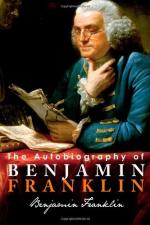comparative wealth; and in a few years he had made
discoveries that gave him a reputation with the learned
throughout Europe. In politics he proved very
able both as an administrator and as a controversialist;
but his record as an office-holder is stained by the
use he made of his position to advance his relatives.
His most notable service in home politics was his
reform of the postal system; but his fame as a statesman
rests chiefly on his services in connection with the
relations of the Colonies with Great Britain, and later
with France. In 1757 he was sent to England
to protest against the influence of the Penns in the
government of the colony, and for five years he remained
there, striving to enlighten the people and the ministry
of England as to Colonial conditions. On his
return to America he played an honorable part in the
Paxton affair, through which he lost his seat in the
Assembly; but in 1764 he was again despatched to England
as agent for the colony, this time to petition the
King to resume the government from the hands of the
proprietors. In London he actively opposed the
proposed Stamp Act, but lost the credit for this and
much of his popularity through his securing for a
friend the office of stamp agent in America.
Even his effective work in helping to obtain the repeal
of the act left him still a suspect; but he continued
his efforts to present the case for the Colonies as
the troubles thickened toward the crisis of the Revolution.
In 1767 he crossed to France, where he was received
with honor; but before his return home in 1775 he
lost his position as postmaster through his share
in divulging to Massachusetts the famous letter of
Hutchinson and Oliver. On his arrival in Philadelphia
he was chosen a member of the Continental Congress
and in 1777 he was despatched to France as commissioner
for the United States. Here he remained till
1785, the favorite of French society; and with such
success did he conduct the affairs of his country
that when he finally returned he received a place
only second to that of Washington as the champion
of American independence. He died on April 17,
1790.
The first five chapters of the Autobiography were composed in England in 1771, continued in 1784-5, and again in 1788, at which date he brought it down to 1757. After a most extraordinary series of adventures, the original form of the manuscript was finally printed by Mr. John Bigelow, and is here reproduced in recognition of its value as a picture of one of the most notable personalities of Colonial times, and of its acknowledged rank as one of the great autobiographies of the world.
Benjamin Franklin
his autobiography
1706-1757
Twyford, at the Bishop of St. Asaph’s,<0> 1771.
<0> The country-seat of Bishop
Shipley, the good bishop,
as Dr. Franklin used to style him.—B.




